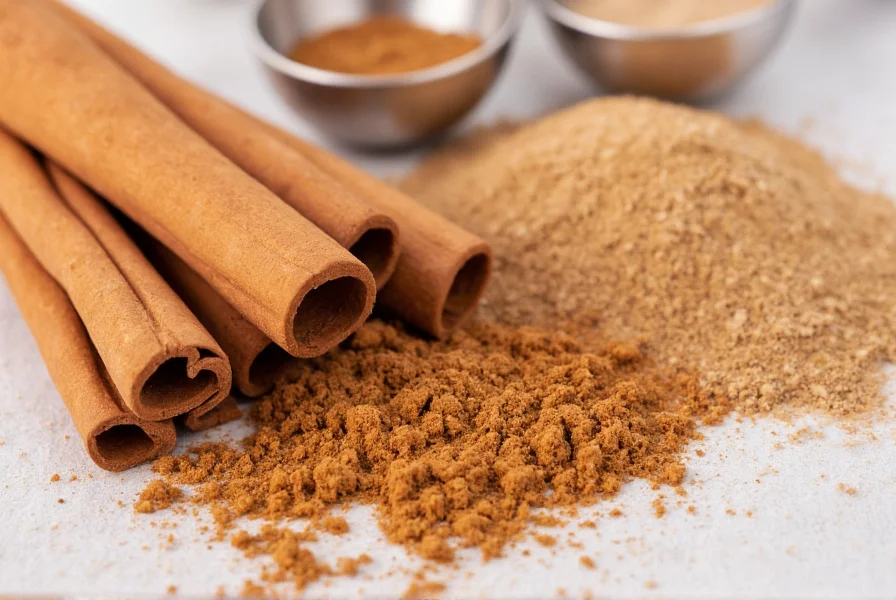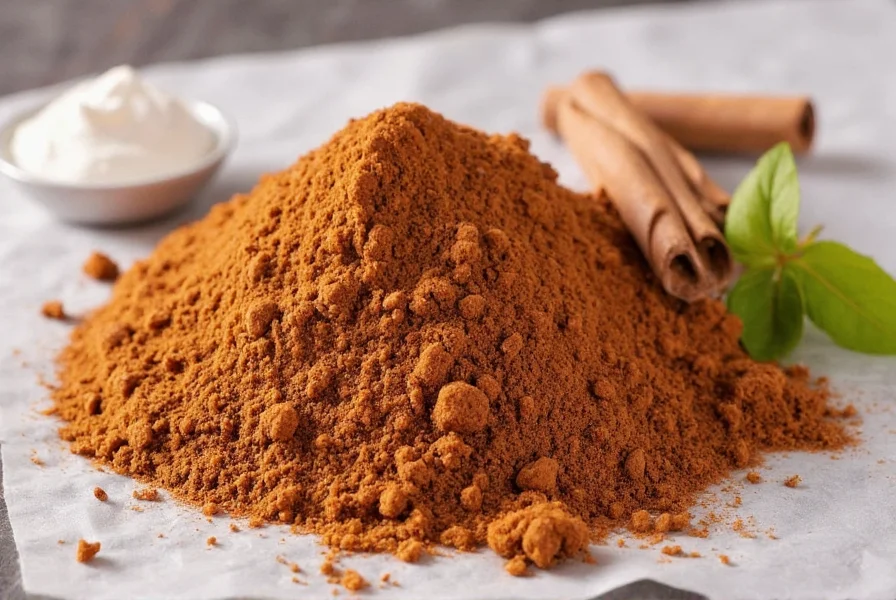Cinnamon isn't just a holiday baking essential—it's a powerhouse spice with centuries of culinary and medicinal use. This aromatic bark from Cinnamomum trees contains potent compounds that offer both flavor and potential health advantages. Understanding what cinnamon spice is good for requires examining both its traditional applications and modern scientific evidence.
Culinary Applications of Cinnamon
Professional chefs and home cooks value cinnamon for its ability to transform both sweet and savory dishes. Unlike many spices that work primarily in one culinary domain, cinnamon bridges multiple flavor profiles:
- Baking staple: Essential in pies, cookies, and breads where it complements apples, pears, and chocolate
- Savory enhancer: Key ingredient in Middle Eastern and North African spice blends like ras el hanout and baharat
- Beverage booster: Elevates coffee, tea, and hot chocolate with minimal calories
- Fruit amplifier: Brings out natural sweetness in fruits like bananas and stone fruits
When exploring what is cinnamon spice good for in cooking, consider its synergy with other warm spices like nutmeg and cloves, or its surprising compatibility with citrus flavors in modern fusion cuisine.
Science-Backed Health Benefits of Cinnamon
Research into cinnamon's health properties has accelerated in recent decades. While not a replacement for medical treatment, studies suggest several potential benefits:
Blood Sugar Regulation Support
Multiple clinical trials indicate cinnamon may help improve insulin sensitivity. A comprehensive review published in Nutrition Research analyzed ten studies and found that cinnamon supplementation significantly reduced fasting blood glucose levels. The compound cinnamaldehyde appears to mimic insulin and enhance glucose uptake by cells—making cinnamon spice for blood sugar management a promising area of research.
Powerful Antioxidant Properties
Cinnamon ranks exceptionally high on the ORAC (Oxygen Radical Absorbance Capacity) scale, which measures antioxidant capacity. Its polyphenols combat oxidative stress that contributes to chronic diseases. In fact, just one teaspoon of cinnamon provides more antioxidants than a half-cup of blueberries.
| Cinnamon Type | Antioxidant Content (ORAC/100g) | Primary Bioactive Compound |
|---|---|---|
| Ceylon Cinnamon | 267,536 | Cinnamaldehyde (50-73%) |
| Cassia Cinnamon | 107,000 | Cinnamaldehyde (60-90%) |
Anti-Inflammatory Effects
Chronic inflammation underlies many modern diseases. Cinnamon's cinnamaldehyde and epicatechin demonstrate significant anti-inflammatory activity in laboratory studies. Research in BMC Complementary Medicine and Therapies found cinnamon extract reduced inflammatory markers in human cells, suggesting potential cinnamon spice anti-inflammatory benefits for conditions like arthritis.
Cardiovascular Support
Several studies link regular cinnamon consumption to improved heart health markers. A meta-analysis in Diabetes Care reported that cinnamon supplementation significantly reduced triglycerides, LDL cholesterol, and total cholesterol in study participants—key factors in what is cinnamon good for regarding cardiovascular wellness.
Traditional Medicinal Uses vs. Modern Evidence
Ancient Ayurvedic and Traditional Chinese Medicine practitioners used cinnamon for digestive issues, respiratory conditions, and circulation problems. While modern science validates some traditional uses, it's important to distinguish between historical applications and evidence-based benefits:
- Digestive aid: Traditional use supported by research showing cinnamon may reduce gastric emptying time
- Antimicrobial properties: Lab studies confirm cinnamon's effectiveness against certain bacteria and fungi
- Cognitive support: Emerging research suggests potential neuroprotective effects, though human studies remain limited
When evaluating cinnamon spice traditional medicinal uses, remember that traditional knowledge often precedes scientific validation—but not all traditional applications have been confirmed by modern research.
Practical Ways to Incorporate Cinnamon
Understanding what cinnamon spice is good for means knowing how to use it effectively:
- Add ½ teaspoon to morning oatmeal or smoothies for blood sugar support
- Combine with turmeric and black pepper in golden milk for enhanced anti-inflammatory effects
- Use in place of sugar in coffee or tea to reduce added sugars
- Create a savory rub with paprika and garlic powder for meats

Ceylon vs. Cassia: Understanding Cinnamon Types
Not all cinnamon delivers the same benefits. The two primary varieties differ significantly:
- Ceylon cinnamon (Cinnamomum verum): "True cinnamon" with delicate flavor, lower coumarin content, preferred for regular consumption
- Cassia cinnamon (Cinnamomum cassia): Stronger, more common in supermarkets, higher coumarin levels which may cause liver issues in large quantities
For those exploring how to use cinnamon for health, Ceylon is generally recommended due to its superior safety profile for regular consumption.
Safety Considerations and Dosage
While cinnamon is safe for most people in culinary amounts, those considering therapeutic use should note:
- Standard culinary use: ½-1 teaspoon daily
- Therapeutic range in studies: 1-6 grams (approximately ½-2 teaspoons) daily
- Cassia cinnamon contains coumarin, which in excess may affect liver function
- Those with liver conditions or taking blood thinners should consult healthcare providers
Conclusion: Maximizing Cinnamon's Potential
What is cinnamon spice good for? This versatile spice offers both culinary delight and potential health advantages when used appropriately. From enhancing flavor profiles in diverse cuisines to potentially supporting metabolic health, cinnamon's value extends far beyond its role as a seasonal baking ingredient. By understanding the science behind cinnamon spice antioxidant properties and other benefits, you can make informed decisions about incorporating this ancient spice into your modern lifestyle.
Frequently Asked Questions
Can cinnamon really help regulate blood sugar levels?
Multiple clinical studies suggest cinnamon may improve insulin sensitivity and reduce fasting blood glucose levels. A meta-analysis in the Journal of the Academy of Nutrition and Dietetics found significant reductions in blood sugar markers among participants consuming 1-6 grams of cinnamon daily. However, it should complement—not replace—standard diabetes management approaches.
What's the difference between Ceylon and Cassia cinnamon for health benefits?
Ceylon cinnamon ("true cinnamon") contains significantly less coumarin than Cassia cinnamon, making it safer for regular consumption. Both types offer similar antioxidant and anti-inflammatory compounds, but Ceylon's lower coumarin content makes it preferable for therapeutic use, especially for those with liver concerns or taking certain medications.
How much cinnamon should I consume daily for health benefits?
For general health benefits, ½ to 1 teaspoon (1-2 grams) of Ceylon cinnamon daily is sufficient. Clinical studies showing blood sugar benefits typically used 1-6 grams (approximately ½-2 teaspoons) daily. Those using Cassia cinnamon should limit intake to ½ teaspoon daily due to higher coumarin content. Always consult with a healthcare provider before using cinnamon therapeutically.
Can I use cinnamon as a replacement for diabetes medication?
No, cinnamon should never replace prescribed diabetes medications. While research shows cinnamon may support blood sugar management as a complementary approach, it doesn't provide the same level of glucose control as medication. Always consult your healthcare provider before making changes to your diabetes treatment plan.
Does cinnamon lose its health benefits when cooked or baked?
Most of cinnamon's beneficial compounds, particularly cinnamaldehyde, remain stable during cooking. Some water-soluble antioxidants may diminish with prolonged high-heat exposure, but the spice generally retains its health-promoting properties when used in baking or cooking. For maximum benefit, consider adding some cinnamon after cooking when possible.











 浙公网安备
33010002000092号
浙公网安备
33010002000092号 浙B2-20120091-4
浙B2-20120091-4